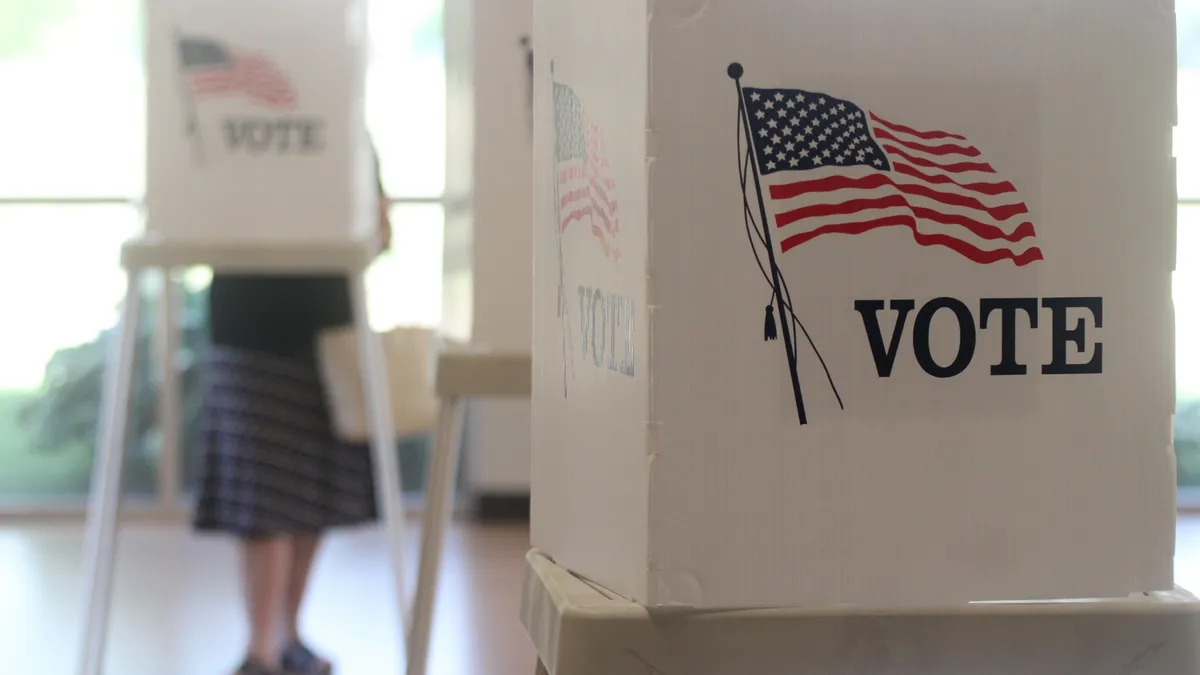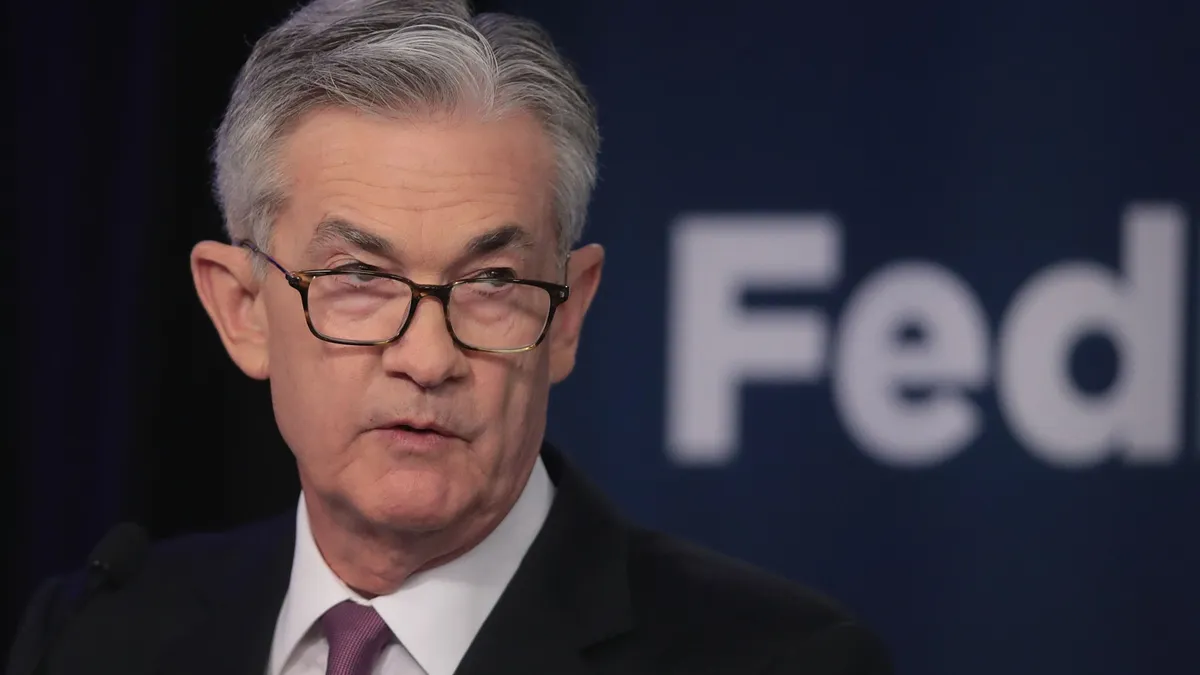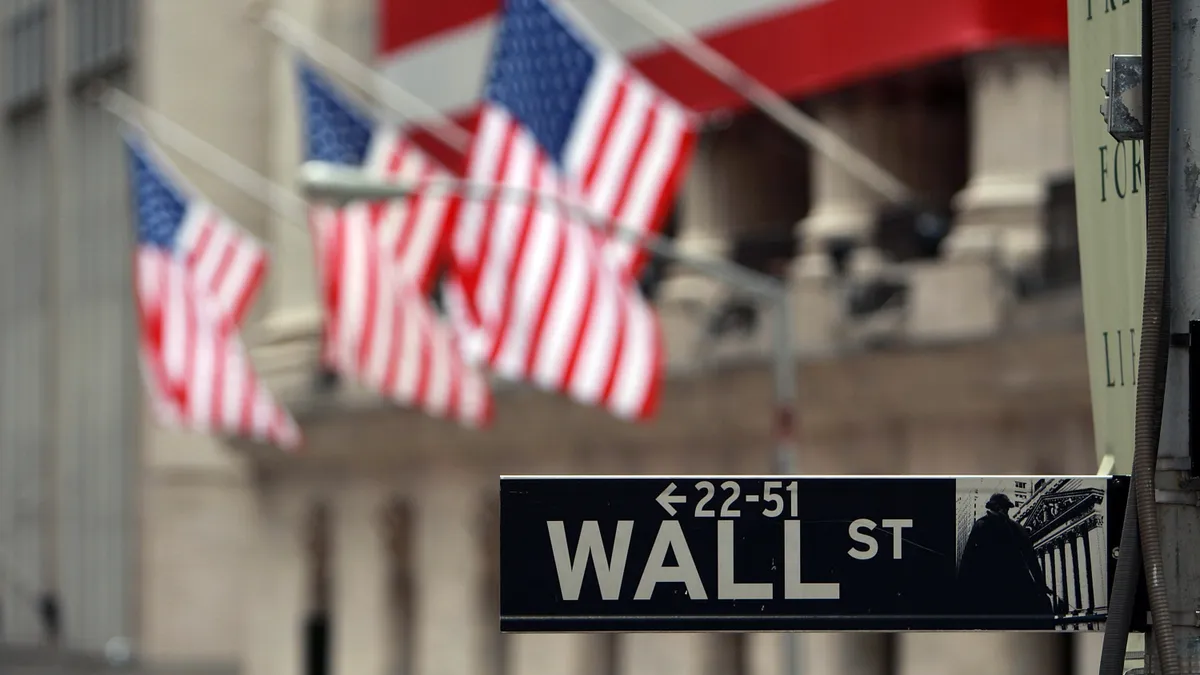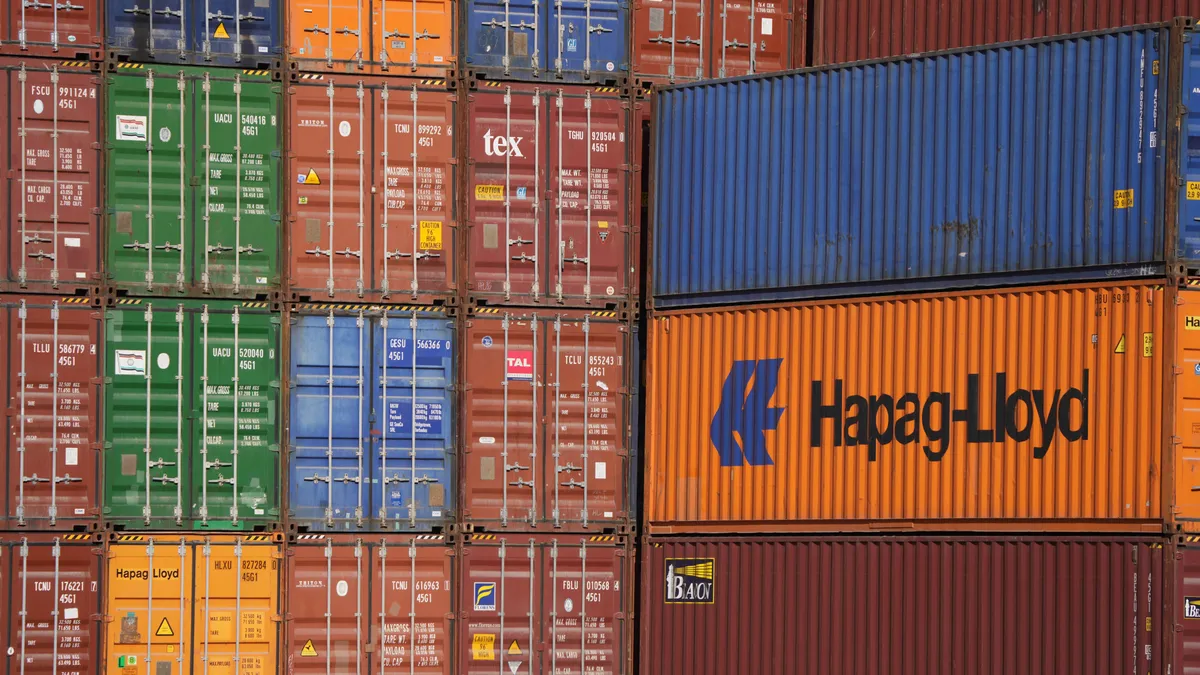The U.S. election is one of multiple event-related risks which executive and business leaders are bracing for next month, said Tanvir Sandhu, chief global derivatives strategist at Bloomberg Intelligence. Sandhu spoke on cross-asset and macroeconomic volatility during the Bloomberg Volatility Forum which took place Oct. 1 in New York.
“We have a confluence of employment reports, we have the election, and then we have the FOMC meeting,” he said in an interview of events that are all occurring in the first week of November. “So there's a lot of event risk in that seven days, and the [volatility] market is reflecting that event risk.”
Navigating election uncertainty
The uncertainty surrounding the hard-to-predict outcome of the U.S. election has bumped up geopolitical risks as a concern for CFOs, CFO Dive previously reported. A September survey by Big Four firm Deloitte found 58% of CFOs said the election outcome “will be extremely or very consequential for their organizations,” while only 3% said it wouldn’t be consequential at all.
As such, CFOs are weighing how the election could impact everything from tariffs and taxes to their mergers and acquisitions strategies. In a recent survey by Datasite, for example, more than 45% of dealmakers reported they had extended their M&A timeliness in the face of potential election-related disruption, CFO Dive previously reported.
There’s also rising skepticism surrounding “positioning long equity into the election and I think we're seeing some of that skepticism in the options market,” Sandhu said. Another wrinkle finance chiefs are currently weighing is the possibility of a “delay in the final vote, that's kind of concern as well,” he said.
This looks back to 2020, when the main risk was that of a contested election.
“What happens overall is, when you go into an event risk, it gets priced into the volatility curve — in 2020, that actually shifted to after the election…because the market started realizing that the risk of a contested election is much greater than the election day itself,” he said.
Creating a robust portfolio
Election uncertainty is just one factor that is affecting volatility — for many, monetary policy remains a key source of concern, Sandhu said.
“I think the macro monetary policy is going to dominate overall, but obviously we're going to get some short term volatility around the election result for both the bond market and equity market,” he said. Looking to the medium term, “it’s really about the fundamentals and the monetary policy.”
While the Federal Reserve has slashed interest rates from their historic high last month, for Sandhu, the question was not about whether the Fed would cut rates by a quarter or half point at the start of the cut cycle, but “about where our policy rates are going to be in a year or so,” he said. “And there's still a lot of uncertainty around that, and therefore rate volatility remains high.”
“Rates volatility is still going to be elevated, but what we're actually seeing now, because we are talking about a slowdown, not necessarily a huge deterioration, is that there's a transition from bond market volatility to equity volatility, because equity is more concerned about growth risk,” he said.
For finance chiefs, ensuring their companies are well-prepared to weather either election or economic uncertainty means ensuring “your portfolio is robust against unknown risks,” he said.
“We can talk all day about this scenario, that scenario, that scenario, and we can have a whole string of different scenarios,” he said. “However, what we want to achieve is a portfolio that is robust against market declines.”
One way to guard against those unknown risks may be by exploring options, Sandhu said, noting ongoing inflation has somewhat hampered the bond market over the past few years.
“If we have a growth shock, yes, bonds will perform, but if it's inflationary shock, then it's a different equation, and the reactivity of bonds to market decline might not be as robust as people think,” he said. “So options in the portfolio, I think is very important to consider.”





















